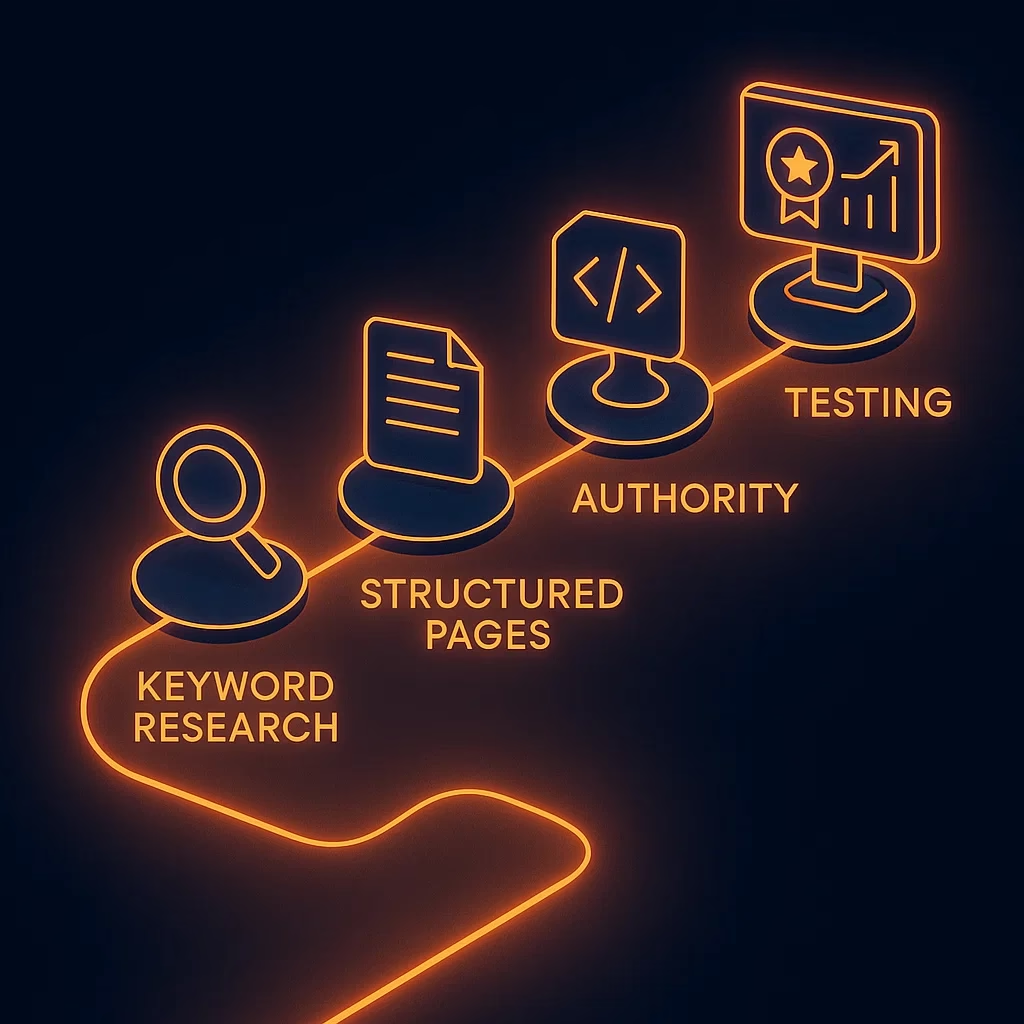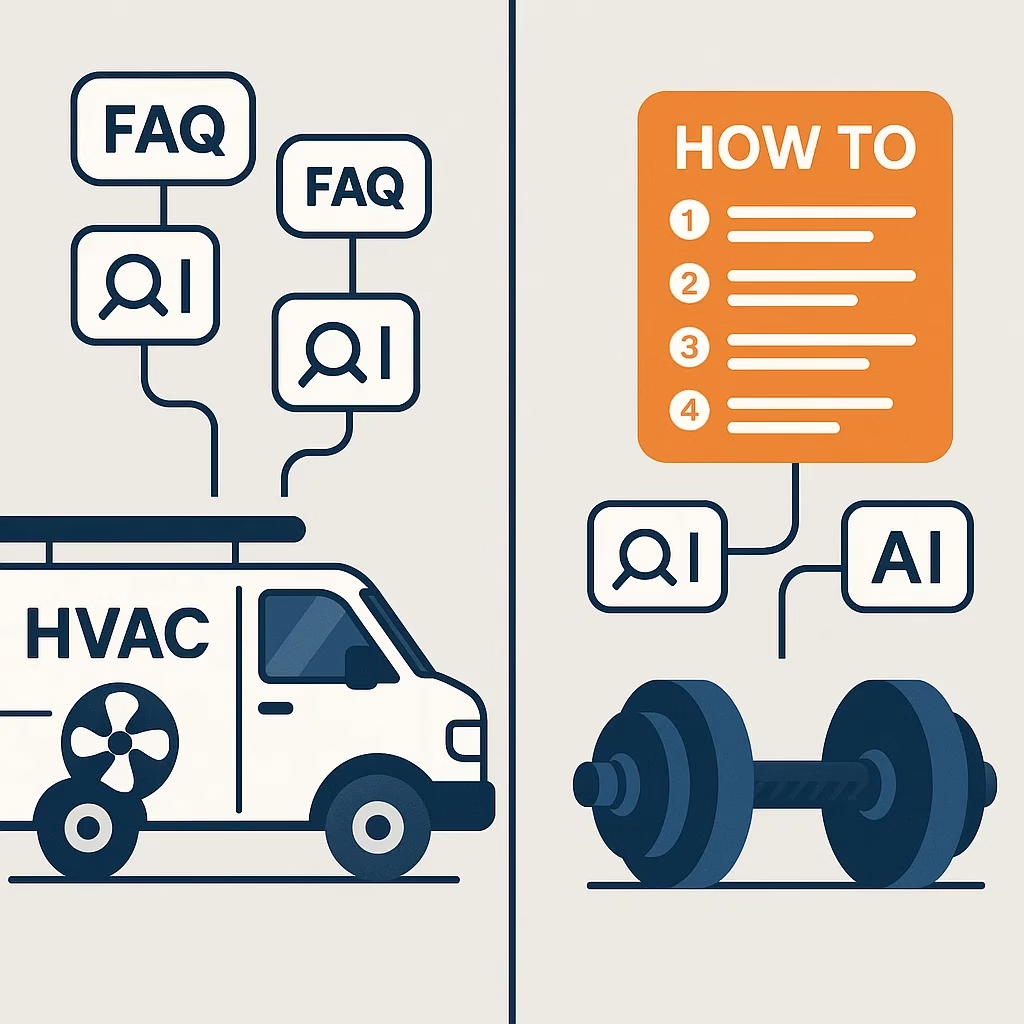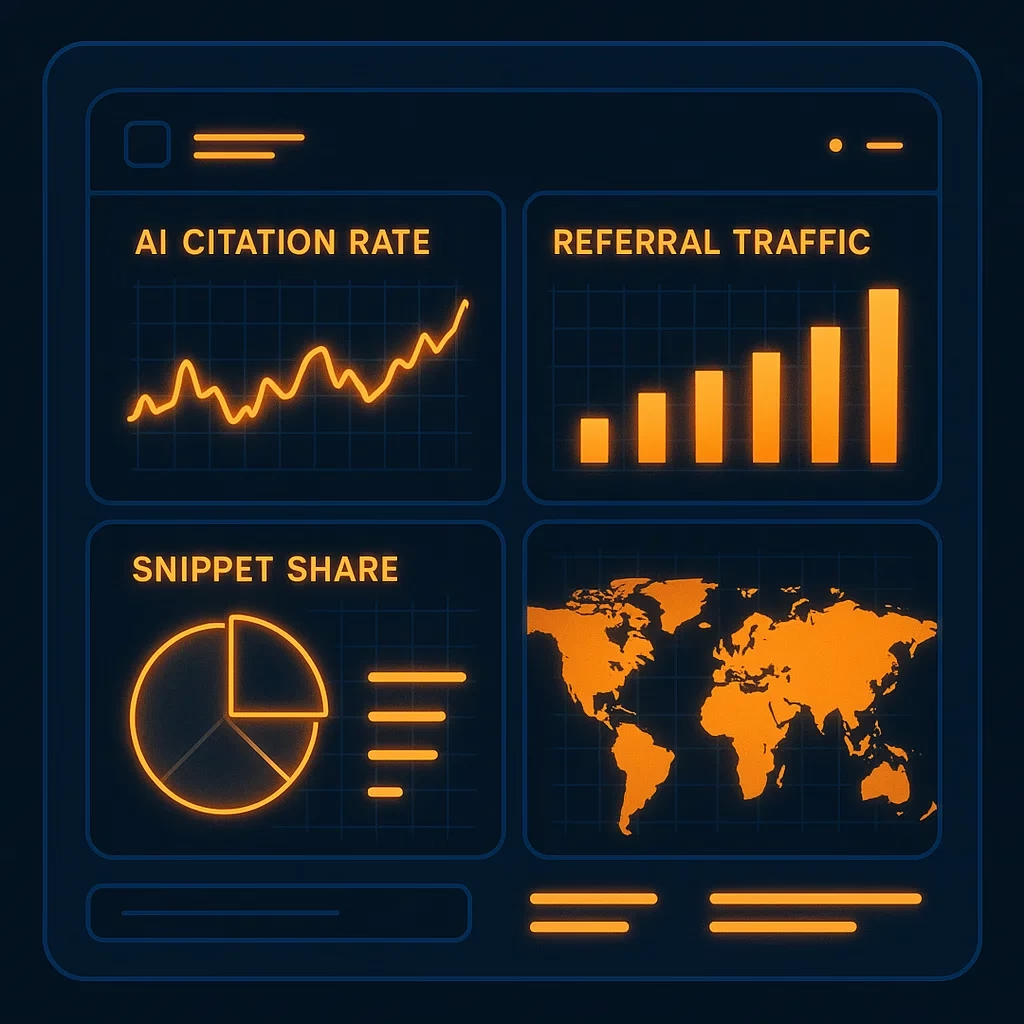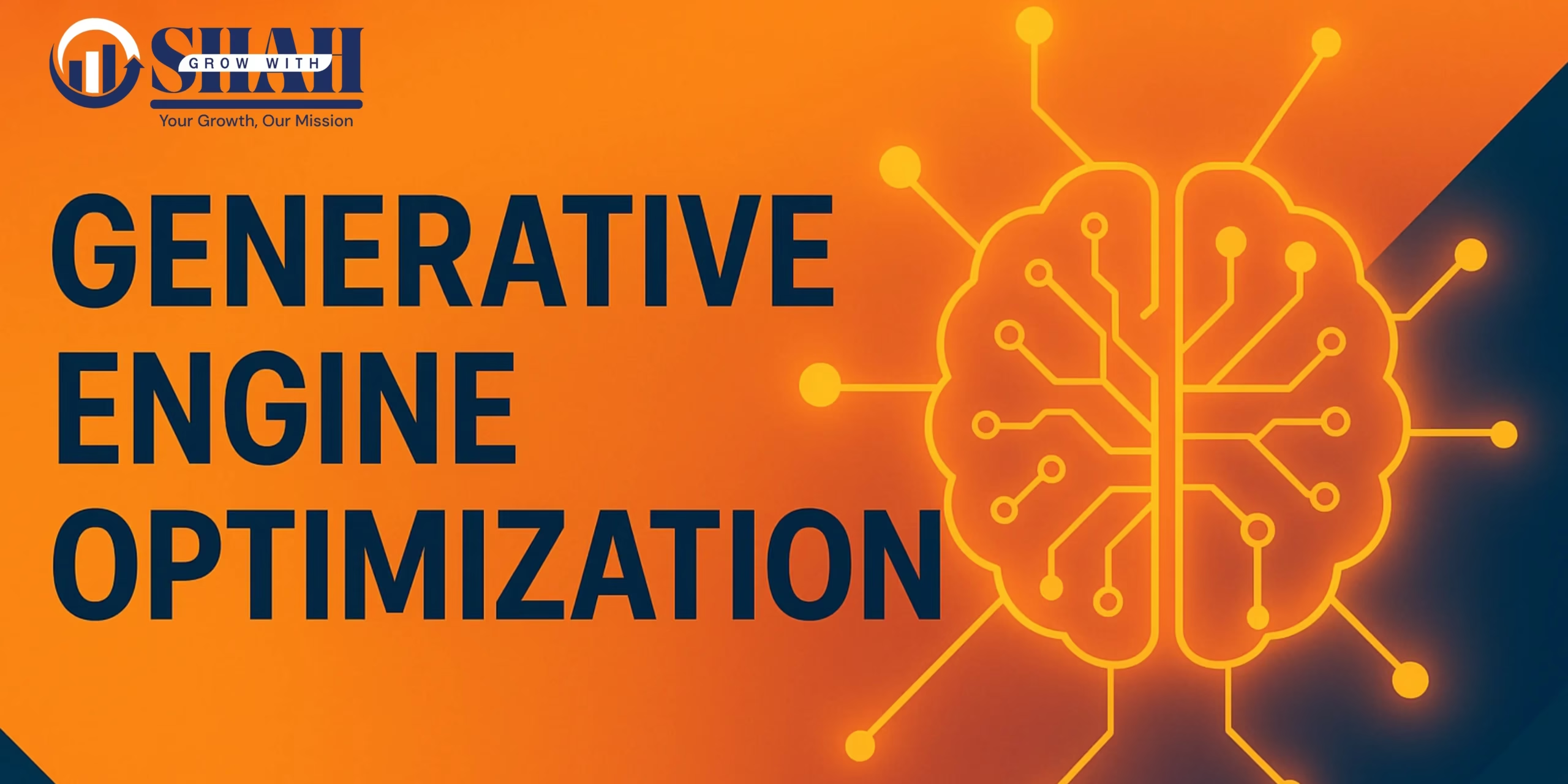Generative Engine Optimization (GEO): Best 2025 SEO Guide to Boost AI Visibility
What Is Generative Engine Optimization
Generative Engine Optimization, often shortened to GEO, is the process of making your content easily discoverable, understandable, and recommendable by artificial intelligence powered search engines and answer engines. Unlike traditional SEO which focuses on ranking in Google’s top ten blue links, GEO is about training your website and content so that conversational AI systems like ChatGPT, Gemini, Perplexity, and AI features in search engines can reference your material, cite your brand, and drive qualified traffic.
In simple terms, it is the next evolution of SEO. Instead of optimizing only for keywords and backlinks, you are optimizing for generative models that process natural language, use context, and summarize content into concise answers. GEO helps ensure that your content is structured in a way that machines can easily parse and present. Businesses that adopt GEO early are positioning themselves ahead of competitors who are still using only traditional methods.
Generative Engine Optimization Services

GEO services are offered by agencies and consultants who specialize in this new wave of search visibility. These services typically combine elements of SEO, technical optimization, structured data, and AI testing.
When You Need GEO Services
GEO is not just for SEO agencies. Restaurants, local shops, and global brands can all benefit. Yet many businesses struggle to execute it effectively on their own. That’s where a professional content marketing agency adds value by creating structured content designed for both human readers and AI visibility. When paired with intelligent marketing automation services, GEO can bring in leads while ensuring every interaction is followed up with precision.
Typical Deliverables From a GEO Agency
Most agencies provide a GEO audit, structured content recommendations, schema markup implementation, and conversational keyword mapping. They may also offer ongoing monitoring to test how your site is appearing in AI generated results. Advanced agencies provide AI readiness reports that show how often your pages are being cited in different generative search engines.
Pricing Signals and Commercial Intent
Pricing for GEO services depends on the size of your website and the scope of implementation. Entry level packages often cover audits and schema while full service plans may include new content creation, AI testing, and ongoing monitoring. The commercial intent behind GEO is clear: higher presence in AI answers leads to more visibility, credibility, and qualified leads.
How to Do Generative Engine Optimization

Effective GEO starts with planning. You cannot just publish content randomly and expect AI engines to pick it up. Structured scheduling ensures consistency and freshness. One way to achieve this is by using a social media content calendar that organizes topics, formats, and publication dates. While originally designed for social posting, the same framework helps you map out FAQs, guides, and structured content that AI engines prefer.
Step 1: Conversational Keyword Research
Unlike traditional keyword research, GEO keyword discovery focuses on natural language questions and prompts. Instead of optimizing for short terms like “digital marketing”, you target conversational queries like “how does digital marketing help small businesses grow”. These longer forms reflect how users ask AI engines for information.
Step 2: Create Structured Pages
Every piece of content should be written with both humans and AI in mind. Use clear H2 and H3 headings with direct answers immediately following them. For example, when the heading is “What is Generative Engine Optimization” the first sentence should define it directly. This makes it easier for AI systems to lift your content as an authoritative snippet.
Step 3: Add Schema
Schema markup such as FAQ, HowTo, and LocalBusiness helps machines interpret your content. Adding JSON LD code signals to AI systems what each section means. For GEO, this is especially valuable since AI engines prefer structured data when generating responses.
Step 4: Authority Signals
Citations, author bios, and expert references all help build trust. AI engines prioritize information that comes from credible sources. Linking to authoritative studies, publishing with named authors, and being cited by other reputable sites increases your chances of being referenced.
Step 5: Test and Iterate
GEO is not a one time setup. Once content is optimized, it should be tested in Perplexity, ChatGPT, Gemini, and Google AI features. If your content is not appearing or cited, refine your structure and update schema. Regular testing ensures that your efforts adapt to the evolving AI landscape.
Generative Engine Optimization Tools

Measuring GEO performance requires the right tools. Beyond Google Search Console and schema testing, businesses should also explore the latest AI tools for 2025 to track how often their content is cited or surfaced in AI responses. These emerging platforms can reveal whether your structured answers appear in generative models like ChatGPT, Gemini, or Perplexity. Staying updated with cutting-edge AI tools ensures you remain competitive in a fast-changing search environment.
Monitoring and SERP Feature Tracking
Traditional SEO tools like Semrush and Ahrefs remain useful because they track featured snippets and question based queries. Monitoring which questions your site appears for helps you understand AI visibility.
AI Testing Tools
Practical GEO requires direct testing in AI engines. By manually entering prompts into Perplexity or ChatGPT, you can see whether your content is referenced. Over time, this testing becomes a key part of content refinement.
Schema and Snippet Testing Tools
Tools like Google’s Structured Data Testing Tool or third party schema validators ensure that your markup is correctly implemented. Poorly formatted schema may block AI systems from recognizing your answers.
Generative Engine Optimization Strategy

A strategy is different from tactics. While tactics are step by step actions strategy is the overall plan that guides your Generative Engine Optimization efforts.
Pillar and Cluster Approach
The most effective content strategy for GEO is the pillar and cluster model. A pillar page covers a broad topic in depth while cluster pages answer related sub questions. Together, they signal topical authority to both search engines and generative models.
Local and Product Specific GEO Tactics
Local businesses benefit from adding structured FAQs about location, services, and hours. E commerce stores can optimize product descriptions with HowTo schema and user questions. This makes them more visible when AI engines answer shopping or local intent queries.
Roadmap for GEO Success
Start with quick wins such as adding schema to existing FAQs. Move to medium term wins like restructuring older blogs with question based headings. In the long term, invest in authority building through thought leadership content, citations, and partnerships.
Generative Engine Optimization Best Practices

The best practices for Generative Engine Optimization are grounded in clarity, structure, and authority.
Clear First Sentences
Each heading should be followed immediately by a clear, definitive sentence that directly answers the query. This format helps AI systems lift your content.
Use Lists and Step by Step Instructions

AI powered engines love structured content like bullet points, numbered steps, and short paragraphs. This style increases the chance of being cited directly.
Keep Content Updated
AI models learn from fresh data. Outdated content loses visibility over time. Regularly update your pages with new facts, case studies, and industry references.
Case Studies and Examples

Local Service Example
A small HVAC company added FAQ schema to their service page answering common questions like “how often should I service my AC”. Within three months, their content began appearing in AI powered search results, driving calls from local customers who discovered them through generative answers.
Product Example
An e commerce business selling fitness gear created a detailed HowTo guide with step by step instructions for setting up home gym equipment. The structured guide was later cited by an AI search engine in a shopping related query. This drove qualified visitors who were ready to buy.
Measuring and Testing GEO Performance
Tracking GEO performance requires a mix of traditional and AI specific metrics.

Primary KPIs
“The key metrics to track in Generative Engine Optimization include your AI citation rate, the volume of referral traffic coming from generative engines, and your share of featured snippets. Together, these numbers reveal how visible and authoritative your brand truly is across AI-driven search platforms.”
Audit Cadence
Run GEO audits every month or at least every quarter. Look for improvements in citation frequency, schema coverage, and question based ranking. Tools and manual testing together provide the best insights.
Conclusion: Future Proof Your SEO With Generative Engine Optimization
Generative Engine Optimization is no longer optional. In 2025, it is the foundation of visibility in an AI powered digital world. By adopting GEO today, businesses secure their place in tomorrow’s search ecosystem.
If you want expert help, our agency provides GEO audits, schema builds, and AI testing. We design a 90 day plan to boost your visibility in generative search engines and turn that exposure into leads. Book a free consultation and see how GEO can drive growth for your brand.
Frequently Asked Questions
What Is a Generative Engine Optimization Course
A Generative Engine Optimization course teaches marketers, entrepreneurs, and SEO professionals how to make their content ready for AI powered search engines. These courses typically cover conversational keyword research, structured content creation, schema implementation, and AI testing. A good course should also provide templates and hands on practice.
Should I Hire a Generative Engine Optimization Agency
Hiring a GEO agency is recommended if your business depends on organic leads and you do not have in house expertise with schema or AI testing. Agencies bring specialized knowledge, established workflows, and access to tools. They also shorten the learning curve and deliver faster results than experimenting on your own.
What Are the Best Generative Engine Optimization Tools
The best tools for GEO include Semrush and Ahrefs for question discovery, Google Search Console for impression data, Perplexity and ChatGPT for visibility testing, and schema validators for technical accuracy. Combining these tools ensures that you cover research, optimization, and monitoring in one complete workflow.







